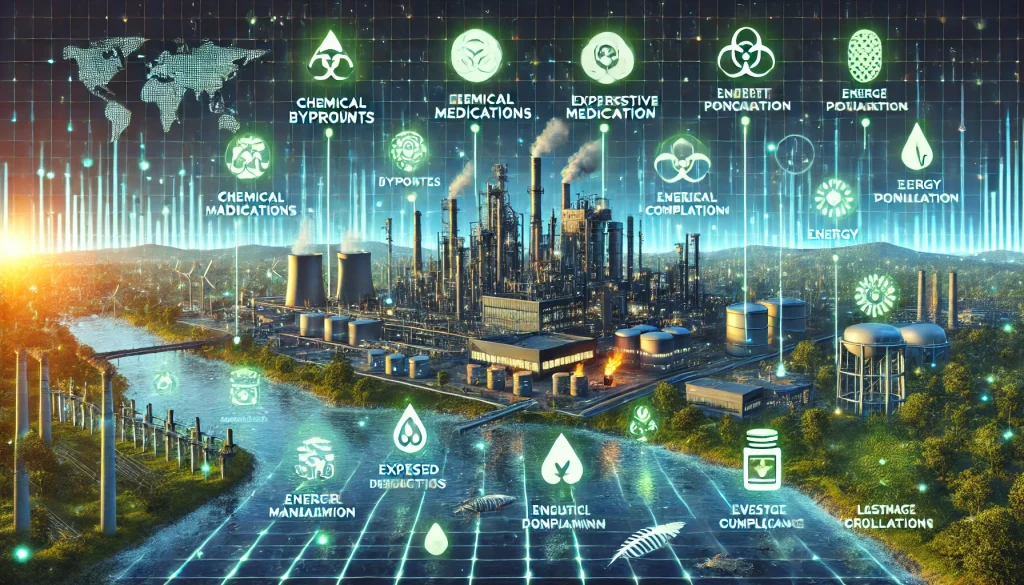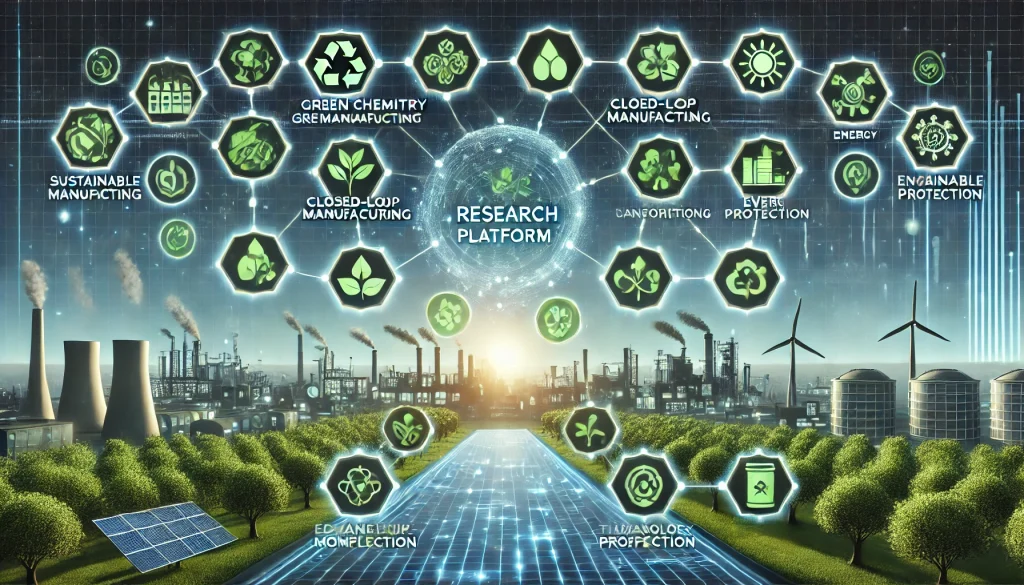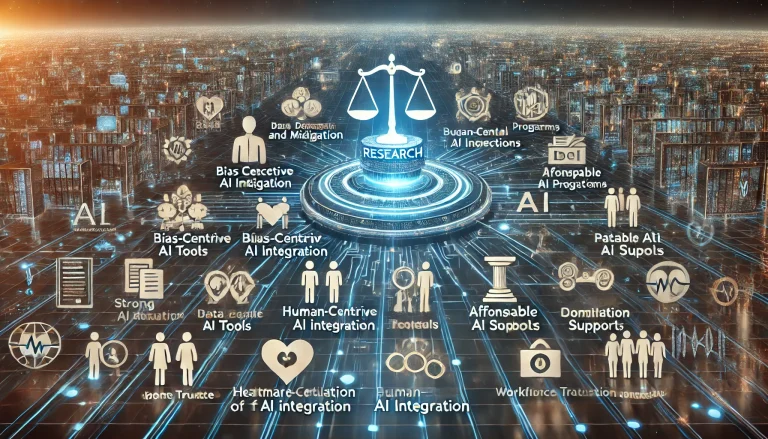Problem Statement
Pharmaceutical manufacturing plays a crucial role in global healthcare, producing the medications and treatments that millions of people rely on every day. However, this industry also generates significant environmental waste, including chemical byproducts, solvents, and expired medications. If not managed properly, the disposal of these materials can lead to serious environmental pollution, affecting water supplies, soil quality, and ecosystems. For example, pharmaceuticals that enter waterways can disrupt aquatic life, leading to the development of antibiotic-resistant bacteria and other ecological impacts. The improper disposal of expired medications can result in harmful chemicals leaching into the soil and groundwater, posing risks to both human health and the environment.
The challenge of reducing the environmental footprint of pharmaceutical manufacturing is compounded by the complexity of the production process, which often involves the use of hazardous chemicals and energy-intensive procedures. While regulations exist to manage industrial waste, enforcement and compliance can vary, leading to inconsistent environmental practices across the industry. Additionally, the cost of implementing sustainable practices can be a barrier for many companies, particularly smaller manufacturers.
Addressing these issues requires a concerted effort to adopt sustainable manufacturing practices, such as green chemistry, waste minimization, and energy efficiency. It also involves the development and enforcement of stricter environmental regulations, as well as increased transparency and accountability within the industry. By prioritizing sustainability, the pharmaceutical sector can reduce its environmental impact while continuing to produce the life-saving medications that society depends on.
Pain Points
- Chemical Byproducts: The production process generates hazardous chemical waste that requires proper disposal.
- Expired Medications: Improper disposal of expired drugs leads to environmental pollution, particularly in water supplies.
- Water Contamination: Pharmaceuticals entering waterways can disrupt ecosystems and contribute to antibiotic resistance.
- Soil and Groundwater Pollution: Improper disposal of waste materials can contaminate soil and groundwater.
- Energy-Intensive Processes: Pharmaceutical manufacturing often involves high energy consumption, contributing to carbon emissions.
- Waste Management Costs: Implementing sustainable waste management practices can be costly, especially for smaller companies.
- Regulatory Compliance: Variability in regulations and enforcement leads to inconsistent environmental practices across the industry.
- Lack of Transparency: Insufficient reporting and accountability regarding environmental practices in pharmaceutical manufacturing.
- Ecosystem Disruption: Environmental pollution from pharmaceutical waste can harm wildlife and disrupt ecosystems.
- Sustainability Challenges: Balancing production needs with the implementation of sustainable practices.

Future Vision
Our platform envisions a future where pharmaceutical manufacturing is synonymous with environmental sustainability, significantly reducing its ecological footprint while maintaining the production of essential medications. By adopting green chemistry principles, the industry can minimize the use of hazardous chemicals and generate less waste, leading to safer and more efficient production processes. The platform will promote the implementation of closed-loop manufacturing systems, where waste materials are recycled or repurposed, thereby reducing the need for disposal and minimizing environmental impact.
To address the issue of expired medications, the platform will advocate for the development of advanced waste disposal technologies and take-back programs that ensure safe and environmentally friendly disposal. Pharmaceutical companies will be encouraged to design products with their entire lifecycle in mind, focusing on reducing environmental impact from production to disposal.
Energy efficiency will be another key focus, with the platform supporting the transition to renewable energy sources and the implementation of energy-saving technologies in pharmaceutical manufacturing facilities. This will not only reduce carbon emissions but also lower operational costs in the long run.
The platform will also work to enhance regulatory compliance and transparency within the industry. By collaborating with governments and regulatory bodies, the platform will help establish stricter environmental standards and ensure consistent enforcement across the sector. Additionally, pharmaceutical companies will be encouraged to publicly report their environmental practices, fostering greater accountability and consumer trust.
Through these initiatives, our platform aims to create a sustainable pharmaceutical industry that prioritizes the health of both people and the planet.
Use Cases
- Green Chemistry Adoption: Implementing eco-friendly chemical processes to reduce hazardous waste generation.
- Closed-Loop Manufacturing: Developing systems where waste materials are recycled or repurposed within the production process.
- Advanced Waste Disposal Technologies: Promoting technologies that ensure the safe disposal of expired medications and chemical byproducts.
- Take-Back Programs: Encouraging pharmaceutical companies to establish programs for the safe return and disposal of unused medications.
- Energy Efficiency Initiatives: Supporting the adoption of energy-saving technologies and renewable energy sources in manufacturing facilities.
- Regulatory Compliance Tools: Providing resources and support to help companies meet stricter environmental regulations.
- Transparency and Reporting: Encouraging companies to publicly disclose their environmental practices and sustainability efforts.
- Ecosystem Protection: Implementing practices that minimize the impact of pharmaceutical waste on ecosystems and wildlife.
- Sustainable Product Design: Encouraging the design of pharmaceutical products with sustainability in mind, from production to disposal.
- Collaboration with Regulatory Bodies: Working with governments and regulators to establish and enforce consistent environmental standards.
Target Users and Stakeholders
- User: Environmental Health Officers, Pharmaceutical Manufacturers, and Regulatory Agencies
- Age Group: 30-60 years
- Gender: M/F
- Usage Pattern: Regular usage for managing environmental practices, regulatory compliance, and sustainability initiatives in pharmaceutical manufacturing
- Benefit: Reduced environmental impact, improved regulatory compliance, and enhanced sustainability in pharmaceutical production
- Stakeholders:
- Pharmaceutical Companies: Businesses involved in the production and distribution of medications
- Regulatory Bodies: Agencies responsible for enforcing environmental regulations and standards
- Environmental Organizations: Groups focused on protecting the environment and promoting sustainability
- Healthcare Providers: Entities concerned with the safe disposal of expired medications and pharmaceutical waste
- Consumers: Individuals who benefit from environmentally responsible pharmaceutical practices
Key Competition
- Pfizer: Implements green chemistry and waste reduction initiatives in its manufacturing processes.
- GSK (GlaxoSmithKline): Focuses on sustainability and environmental impact reduction in pharmaceutical production.
- Novartis: Integrates sustainability into its manufacturing operations, including waste management and energy efficiency.
- Johnson & Johnson: Committed to reducing environmental impact through sustainable practices in pharmaceutical manufacturing.
- Roche: Emphasizes sustainability and environmental responsibility in its pharmaceutical production processes.
Products/Services
- Pfizer Green Chemistry: Eco-friendly chemical processes that reduce hazardous waste in pharmaceutical manufacturing.
- GSK Sustainability Initiatives: Programs aimed at minimizing environmental impact in pharmaceutical production.
- Novartis Waste Management: Advanced waste disposal and recycling systems in pharmaceutical manufacturing.
- Johnson & Johnson Energy Efficiency: Implementation of energy-saving technologies and renewable energy sources in manufacturing.
- Roche Environmental Responsibility: Comprehensive sustainability practices in pharmaceutical production.
Active Startups
- GreenLight Biosciences: Focuses on sustainable manufacturing processes for pharmaceuticals and other products.
- BenevolentAI: Uses AI to optimize pharmaceutical manufacturing with a focus on reducing environmental impact.
- SiSaf: Develops sustainable drug delivery technologies that minimize waste and environmental footprint.
- Zymergen: Uses biotechnology to create sustainable materials and processes for pharmaceutical manufacturing.
- Bota Biosciences: Specializes in green chemistry and sustainable bioprocessing for pharmaceutical production.
- Renewable Energy Group (REG): Provides renewable energy solutions for pharmaceutical manufacturing facilities.
- Carbios: Develops innovative recycling technologies for pharmaceutical packaging and waste.
- Agilyx: Focuses on advanced recycling of plastic waste from pharmaceutical manufacturing.
- Pivot Bio: Works on sustainable and environmentally friendly agricultural inputs for pharmaceutical supply chains.
- LanzaTech: Converts industrial waste gases into sustainable chemicals for pharmaceutical manufacturing.
Ongoing Work in Related Areas
- Green Chemistry Research: Advancing eco-friendly chemical processes to reduce hazardous waste in pharmaceutical production.
- Sustainable Manufacturing: Developing closed-loop manufacturing systems and waste reduction technologies.
- Energy Efficiency in Pharma: Implementing energy-saving technologies and renewable energy sources in pharmaceutical facilities.
- Waste Management Innovations: Creating advanced waste disposal technologies for expired medications and chemical byproducts.
- Environmental Regulation: Working with governments and regulatory bodies to establish stricter environmental standards for pharmaceutical manufacturing.
Recent Investment
- GreenLight Biosciences: $102M in Series D funding led by Morningside Ventures, October 2020.
- BenevolentAI: $115M in Series C funding led by Temasek, April 2018.
- Zymergen: $300M in Series D funding led by Baillie Gifford, September 2020.
- SiSaf: $5M in Series A funding led by V-Bio Ventures, June 2019.
- Bota Biosciences: $15M in Series A funding led by Matrix Partners China, January 2020.
Market Maturity
The market for sustainable practices in pharmaceutical manufacturing is rapidly maturing, driven by the increasing demand for environmentally responsible production processes. Established pharmaceutical companies like Pfizer, GSK, and Novartis are leading the way with green chemistry initiatives, waste management systems, and energy efficiency programs. At the same time, startups like GreenLight Biosciences, BenevolentAI, and Zymergen are pushing the boundaries with innovative technologies that minimize the environmental impact of pharmaceutical production. Significant investments in green chemistry, sustainable manufacturing, and waste management are transforming the industry, enabling more eco-friendly and efficient production processes. As the market continues to evolve, we expect to see more integrated and advanced platforms that prioritize sustainability while maintaining the production of high-quality medications.
Summary
Pharmaceutical manufacturing generates significant environmental waste, including chemical byproducts and expired medications. Improper disposal of these materials can lead to environmental pollution, affecting water supplies and ecosystems. Addressing this issue requires sustainable practices and regulations to minimize the environmental footprint of pharmaceutical production. Our proposed platform leverages green chemistry, closed-loop manufacturing, advanced waste disposal technologies, and energy efficiency initiatives to reduce the environmental impact of pharmaceutical manufacturing. Key pain points include chemical byproducts, expired medications, water contamination, soil and groundwater pollution, energy-intensive processes, waste management costs, regulatory compliance, lack of transparency, ecosystem disruption, and sustainability challenges.
Target users include environmental health officers, pharmaceutical manufacturers, and regulatory agencies, with stakeholders encompassing pharmaceutical companies, regulatory bodies, environmental organizations, healthcare providers, and consumers. Key competitors like Pfizer, GSK, Novartis, Johnson & Johnson, and Roche offer various sustainability initiatives in pharmaceutical manufacturing, while startups such as GreenLight Biosciences, BenevolentAI, and Zymergen are driving innovation in this space. Recent investments highlight significant interest and growth potential in platforms addressing the environmental impact of pharmaceutical manufacturing.
By addressing these challenges and leveraging advanced technologies, our platform aims to create a sustainable pharmaceutical industry that prioritizes the health of both people and the planet.



